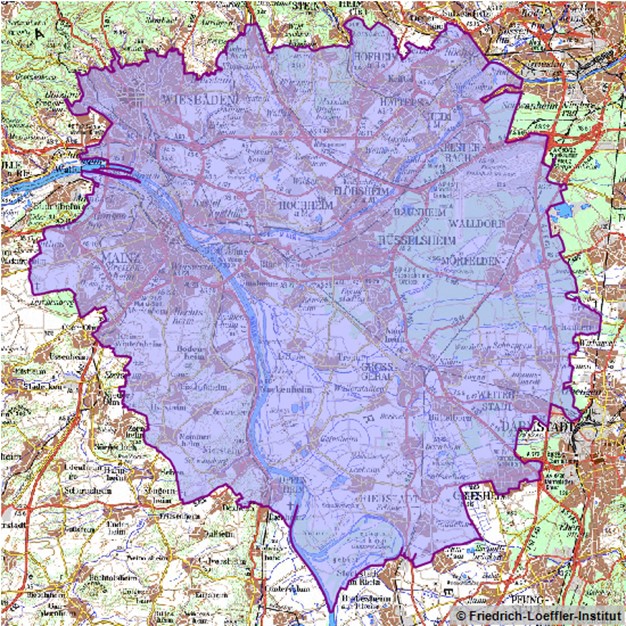

On July 6th in Rheinland-Pfalz, near the city Gimbsheim, one sick and one dead wild boar were found. One of these boars was confirmed to be infected with African swine fever by the Friederich-Loeffler-Institut (FLI) on July 9th. This area is located on the opposite side of the Rhine from the previously reported outbreak among wild boars near Groß-Gerau in Hesse.

Last Sunday (June 15th), the Friedrich-Loeffler-Institut (FLI) confirmed that African swine fever (ASF) was detected in a wild boar from Groß-Gerau, Hesse, near Frankfurt am Main. On Tuesday, this was officially reported by Germany’s Chief Veterinary Officer (CVO). The infected wild boar exhibited abnormal behavior, which led to it being shot and researched. Two nearby carcasses were also tested, but they were not infected.

After finding the infection with ASF, an area with a radius of approximately 15 km was designated as a restriction zone, including a general prohibition on hunting activities. Additionally, the mandatory measures required by European regulations, such as the removal and sampling of carcasses and transportation restrictions, have been implemented. The area is located at a considerable distance from existing outbreak zones in Germany.
Earlier this month, on June 5th, an outbreak of ASF was reported on a pig farm in Vorpommern-Greifswald.
Please report wild boars displaying abnormal behaviour and wild boars found dead to the local grounds manager or organisation, the local big game coordinators, or if these are unknown, to the NVWA (National animal disease reporting point: 045 – 546 31 88).
It is important to prevent the introduction of ASF into new areas. The virus can also be spread by human action, for example by throwing away a contaminated pork product in nature (see figure below for the different possible routes).

FLI: Erster Fall von Afrikanischer Schweinepest bei einem Wildschwein in Hessen Distribution map showing ASF zoning measures
European Commission – African Swine Fever